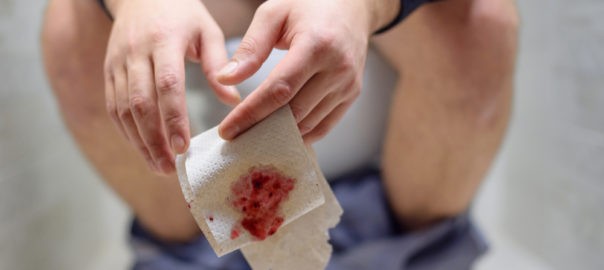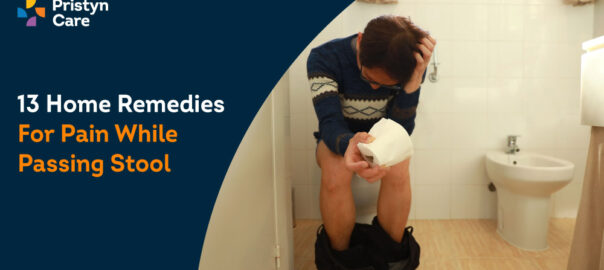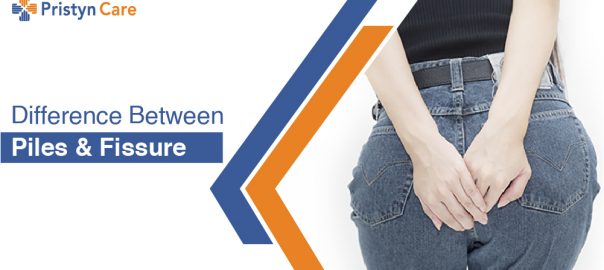![]() Views: 79,686
Views: 79,686
Fissure surgery side-effects: Need to know before going for surgery
After the surgery, your sphincter muscle relaxes which promotes fissure healing and reduces pain and spasms.
Dedicated Support at Every Step!
Our Doctors are available 24 hours a day, 7 days a week to help you!
But there are ways to treat fissure through surgery. Let us go through the surgeries and after-effects.
Table of Contents
What is fissure surgery?
There are different surgeries to treat fistula. One is lateral internal sphincterotomy (LIS) and the other is the laser sphincterotomy.
- Lateral Internal Sphincterotomy
The doctor cuts a small portion of the anal sphincter muscle which results in reduced spasm and pain by releasing the tension. This is done in many anal fissure cases as it leads to reduced pain and spasm.
- Laser Sphincterotomy
It is a commonly preferred procedure and minimally invasive treatment for severe anal spasm in cases of anal fissures.
How painful is fissure surgery?
The pain post-surgery usually goes away with time in a few days lateral internal sphincterotomy. You might face pain during bowel movement for a few days. Whereas laser surgery is a medically advanced procedure and there are minimally invasive and stitches involved in the process.
Also read: Why do you need surgery to treat anal fissure
There are some side-effects after fissure surgery (lateral internal sphincterotomy):
Infection:
Complications related to infections after fissure surgery may occur which may be a matter of concern. The diagnosis of an infection is not clear as painful discharge from the anus and swelling persists for some days post-surgery. If you exhibit any symptoms like fever, really bad pain after an initial improvement in symptoms and delayed urinary retention, you need to contact your surgeon immediately and ask for proper examination.
Bleeding:
There could be immediate and delayed bleeding associated with post fissure surgery complications. Minor bleeding after surgery is common. Many patients report frequent passing of small clots and bright red blood after a bowel movement. Bleeding within 24 to 48 hours of a procedure is more likely related to loss of control of vascular pedicle. When bleeding occurs after 2 weeks of the procedure, it is directly related to local trauma or infection.
Also read: Things stool say about your health
Development of fistula:
Continuous drainage and non-healing of the wound in some cases can lead to the formation of abscess and fistula. Although there are very fewer chances of developing such infections after surgery. Such wound complications might be some results of the infections that are not clinically evident.
Incontinence – most dreaded complication:
It is a common complication post-surgery. This is due to irritation/blockage of pelvic nerves and pain invoked reflexes. Local anesthetics can significantly improve pain post-operation and nerve irritation. This problem could be influenced due to age and sex. Excess intravenous fluid also significantly increases the risk of urinary retention. The symptoms of incontinence are usually pain, discomfort, throbbing pressure, feeling of incomplete evacuation and frequent urge to urinate.
Tear extending to the surrounding muscle:
Damage to the anal sphincter or surrounding muscle or nerves can be due to direct thermal or mechanical trauma and even due to some infection developed later. This can also result in incontinence. Meticulous surgery procedure is very important to avoid this issue by keeping the integrity of anal sphincters in check.
Painful bowel movements compelling the person to hold stool:
Due to the extreme pain in the wound after surgery, the patient dreads the moment when it comes to passing stool. The already aching muscles and nerves start paining more when you pass stool. And due to this fear, the patient may dread visiting the toilet which makes the situation worse. This fear can result in an improper fecal evacuation or no evacuation at all which is again a matter of concern.
The above-mentioned side-effects are not there in Laser Surgery for anal fissure. There may be some anesthesia effect which is temporary. The patient gets discharged a day after the laser surgery. As it is a modern-age treatment procedure; the risk of infection is negligible.
Also read: Stages of Anal Fissure Healing
The success rate of fissure surgery:
Laser surgery is more successful than traditional open surgery. Its success rate of laser surgery is more than 97%. The recurrence rate is very low, ranging from 1-3%.
Here, are some precautions that you need to take after fissure surgery (most of them in the case of LIS).
There are some precautions you should take after fissure surgery to avoid complications. These are as follows:
- Take your painkillers after 3-4 hours as the doctor prescribes to cope with pain post-surgery.
- Apply ointments or creams regularly without any miss as your doctor says.
- Take a hot bath and soak for at least 20 minutes 3-4 times a day. This is a recommended and proven method of controlling pain and swelling before and after surgery.
- After bathing, dry the anal area nicely by patting it dry or by using hair drier. Moisture will slow down the healing of the wound.
- Cleanse the area nicely after each bowel movement and pat dry nicely.
- The painkillers might cause constipation which will only add fuel to the fire. Take a stool softener as long as you take pain killers.
- Consume lots of fiber to make your stool bulky and easy to pass. You can also take fiber supplements.
Also read: Food to Cure Fissure
Here are some suggestions that may help you heal quickly after surgery:
- Stay away from caffeinated drinks.
- Drink plenty of water.
- Exercise only if the doctor suggests you but no strenuous activities for some time.
- Do not try enema until and unless your doctor suggests so.
- Slight bleeding is normal after each bowel movement post-surgery, too much or prolonged bleeding is not good. Contact your surgeon if this happens.
- Avoid driving a car or any vehicle after medication. It is not safe.
- Resume working only after consulting your surgeon about the same.
- Do not sit in one position for long hours. Keep moving and stay active.
No Cost EMI, Hassle-free Insurance Approval
Take Away
These are some side effects that you might witness after the traditional fissure surgery. Recurrence of anal fistula is common after traditional fistula surgery. Hard bowel movement or any other kind of trauma may instantly result in fissures. So, it is very important to understand that you need to make lifestyle changes that include good bowel habits and an active lifestyle to avoid such problems. Include home remedies for a healthy diet in your habit that includes lots of fiber, no junk and lots of water. As they say, small changes could lead to astonishing great results.
Above all, consult a doctor if you notice symptoms of fissure or you make lifestyle changes to treat fissure. You can opt for an online consultation to know more about fissure surgery, procedure and side-effects involved in it.
Also read: Tips to prevent Anal Fissure
Also read: Thread Therapy for Fissure










